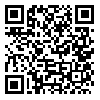BibTeX | RIS | EndNote | Medlars | ProCite | Reference Manager | RefWorks
Send citation to:
URL: http://hayat.tums.ac.ir/article-1-236-en.html
Introduction: Pain is a phenomenon with both personal and cultural meanings. As cultural diversity increases around the world, caregivers are more and more likely to care for clients from backgrounds different from their own. Culture affects the assessment and management of pain. The aim of this study was to explore the meaning of pain experiences in 3 subcultures in Iran.
Materials and Methods: A phenomenological approach was used in order to explore the meanings of post operative pain experiences in participants. Data were gathered through series of semi structured interviews as well as goal-oriented observation and collected written narratives. Benner's interpretive method was used for data analysis.
Results: From analysis of viewpoints of 15 patients from Khorram-Abad, 13 patients from Tehran and 8 patients from Gorgan, 4 themes emerged. Considering postoperative pain insignificant compared to primary pain, need for protection, increase in spirituality and insensitivity of healthcare providers were the emerged themes.
Conclusion: While pain is a subjective and personal phenomenon and reaction to pain is influenced by cultural and personal values, in this study no difference was found in the pain experiences in 3 under-study subcultures. It seems that Iranian-Islamic culture acts as a conceptual umbrella to encompass the whole experiences and influences all subcultures.
| Rights and permissions | |
 |
This work is licensed under a Creative Commons Attribution-NonCommercial 4.0 International License. |





